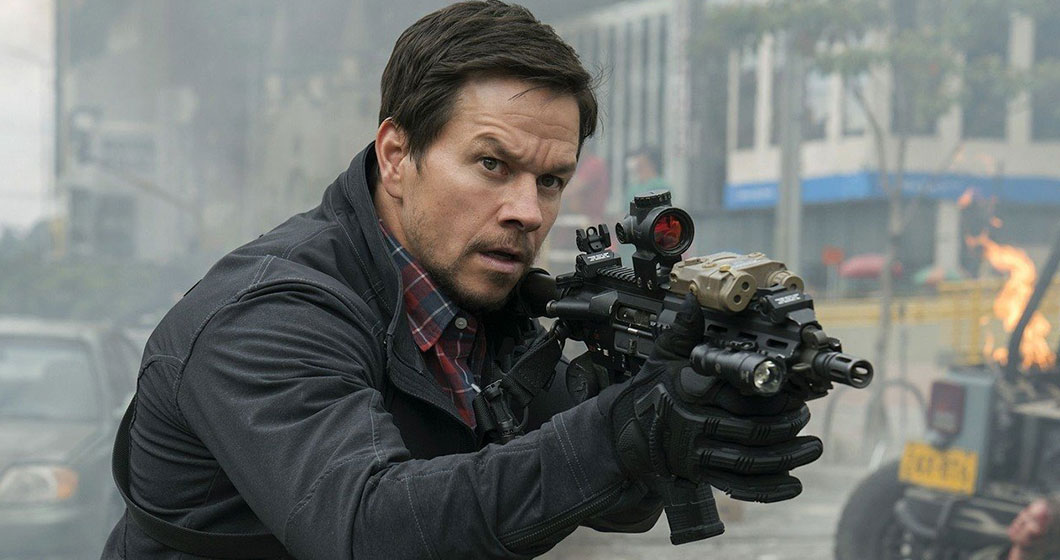Mile 22 is an entertaining, violent action film that seems to be overstretching itself, only to stick the landing and become something a bit more.
Mark Wahlberg is Jimmy Silva, a hyper-intelligent (he solves really difficult jigsaws) paramilitary soldier with a bad attitude (he screams at everyone) who will do anything to get the job done. (he screams that he will do anything to get the job done) He does the jobs that no one else can do, that cannot fail and can never be admitted to, like shooting up a bunch of heavily armed Russian agents in the middle of a suburb then blowing the house up. You know, subtle, pinpoint stuff.
When a mysterious, elite Indonesian soldier, Ji Noor, (Iko Uwais) hands himself into a US embassy in South East Asia, he tells them he knows where some WMDs are. Jimmy Silva believes him. While they don’t do any jigsaw puzzles together, Ji Noor is good at killing people with improvised weapons in his underwear, and so Silva sees in him a kindred spirit.
Jimmy Silva and his team of interchangeable soldiers (there’s him, the one with the beard, the one who is Ronda Rousey, the one who isn’t, and the other two) must get him across the city to an airfield. Only problem is, every street is filled with masked gunmen, and they shoot, stab and explode their way there.
The set up in the first half is a little weak. Director Peter Berg is enamoured with elite people who are excellent at their (contentious) jobs, and the film is filled with their jargon, written and performed as close to realism as possible. The result is that, if you’re not a disavowed CIA operator, you’ll struggle to keep up. Also, Wahlberg plays Silva as a high-functioning headcase, and he is seriously unlikeable. There’s also some subplots about soldiers’ families that you just know aren’t really going anywhere.
Once it gets going, though, it’s good. There’s shootouts, car chases, fist fights and explosions aplenty. Yeah, sure, the elite team of operators starts to get bumped off pretty quickly, but the film realises that you probably don’t care and barely slows the film down. It’s all brutal, but not gratuitous, it’s spectacular, but also feels grounded.
On that note, this may be one of the few examples of the now infamous ‘shaky cam’ done well. The film cuts a lot but does so with the specific purpose of giving as many perspectives as possible on a given scene. There are momentary glimpses through security cameras, camera phones and tourists hand held cameras. It snaps through formats lightening quick and helps remind us that we are just bystanders. This all makes perfect sense to the team, but not to us. The only real loss to the style is Iko Uwais’ work.
Uwais is a bourgeoning star, having made his name in the instant martial arts classic ‘The Raid.’ His work is balletic, and a lot of it is lost to the fast-paced editing style. It’s still good, but perhaps a few more static shots would have helped show off what he can do.
Overall, the film is a more evolved version of Berg’s earlier works, like ‘The Kingdom’ and ‘Lone Survivor.’ While I said he’s enamoured with these people, he’s learned to ask questions about the necessity of them and demonstrates understanding that this work does not create healthy people, and their work has consequences that shouldn’t be brushed aside. This culminates in the unexpected twist. I mean, you sort of knew something was coming. These movies never end in a straightforward way, but this is a genuinely good twist that, aside from casting the whole film in a different light, makes an unexpected argument for understanding and empathy. Honestly, it makes the whole, extremely violent film a very different and much better movie.
7/10






